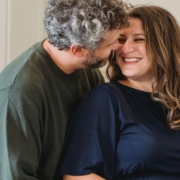How Do You Know When Marriage Counseling Isn’t Working?
In relationships, like in life, there are great times and then there are tougher times. A long-term, committed relationship is one of the most fulfilling experiences a person can have, and something most humans deeply long for. You find someone, fall in love, and embark on a promising new journey together–but it’s normal that along that journey you and your partner will experience challenges. One proven way that helps couples better handle the tests and trials within your relationship is to enroll in marriage counseling.
Unfortunately, marriage counseling (also known as couples counseling) is often associated with a stigma of failure, and as such is seen as a last resort for couples. But in the same way you might conduct routine maintenance on your car to prevent bigger issues, marriage counseling is a great resource for many couples to further solidify their foundation or even rekindle a flickering flame.
Despite all of the positives of marriage counseling (which we get into a little later), it can be difficult to know if it’s working. To that end, we are going to look at some signs marriage counseling is working, and signs that it’s not.
When Does Marriage Not Counseling Work?
Marriage counseling is one of those endeavors where you can only get out what you put in. In other words, if reservations about marriage counseling cause you or your partner to go in half-hearted or closed-minded, you might not be opening yourself up to all the benefits counseling can provide. Oftentimes, this reluctance can cause participants to ask ,”when to stop marriage counseling or when to give up on marriage counseling?”
To answer those questions, let’s take a look at a few reasons or signs that marriage counseling is not working.
- Individual therapy might be a better alternative. It is common for challenges between partners to be rooted in personal issues. Sometimes a marriage counselor will suggest that one or both of the parties involved work with an individual therapist to resolve some of their underlying issues. Once that is accomplished the participant will be in a better headspace to focus on working through the roadblocks in their relationship.
- Just showing up isn’t enough. Sometimes marriage counseling patients think just showing up to the sessions will resolve their issues. The simple fact of the matter is that a therapist can’t solve the problems or do the work for them. Maintaining a relationship can take a lot of deliberate effort. If they aren’t willing to put in the work, that is one sign marriage counseling might not be the right solution for them.
- They have an ulterior agenda. If they have an agenda in marriage counseling that is anything other than improving the relationship, they might not be setting themselves up for success. It is not uncommon for individuals to come in trying to prove that they are right, or convey that their partner is the one who needs to change. Unfortunately, these motivations tend to create more issues as opposed to actually solving anything.
- Your therapist is not a good match. Marriage counseling is an intimate and vulnerable experience. As such, it’s important that participants feel they have an appropriate counselor. For example, at Well Marriage Center, we have a group of around 30 licensed relationship specialists. Between our extensive staff, and our efficient intake-process, we strive to make sure each therapist is the perfect fit. In fact, one of our core values is being pro-relationship, meaning we want to do everything we can to help people rekindle the spark between themself and their partner. Sadly, not all marriage counseling providers go to the same lengths we do to make sure participants feel comfortable with their therapist. This can lead to plateaus in progress, or worse, a completely unpleasant counseling experience.
Is Marriage Counseling Worth It?
For many people this answer is a resounding yes. Provided you both come in with the right intentions and a willingness to put in the effort, marriage counseling can prove to be quite effective. Signs that marriage counseling is working include:
- Your relationship is healing. This is the biggest (and most desireable) sign that couples look for to know if counseling is working. Signs that your relationship is healing include things like improved communication and comfort discussing uncomfortable truths. Another sign of healing might include an increase in affection toward (or from) your partner.
- Eagerness or willingness to attend therapy. At first, couples therapy might feel like a chore or a burden. However, as you start to see improvements in your relationship, your anxiety or doubts about attending sessions might turn into a willingness or even eagerness to continue showing up and working things out.
- You are willing to do the work. Words like “saving,” “repairing,” “fixing,” and “change,” can carry with them a daunting or high-stakes connotation. But, if you are willing to look past the discomfort of starting marriage counseling, you can find yourself wanting to do the hard work. The more you feel fulfilled by the effort you put in, the bigger the sign that marriage counseling is working and worth it.
To further determine if marriage counseling might be right for you, let’s look at a few frequently asked questions.
What Percentage of Marriages Survive After Counseling?
If you’re still wondering about the effectiveness of marriage counseling, the fact that the overwhelming majority of couples have a successful experience might help ease your mind.
How Many Times a Week Should You Go to Marriage Counseling?
The industry standard is once a week at the beginning of couples counseling sessions. Of course that is subject to change based on your specific situation. After your initial counseling sessions, your schedule might be every two weeks or even once a month. Generally speaking, the average length of marriage counseling is 12-20 sessions. (I think some of the other blogs say 12-25 sessions?)
What Are the Signs of a Good Couples Therapist?
There are a handful of things to look for in a good couples counselor.
- For starters, your therapist should be licensed.
- But more than just the license, the therapist’s speciality is what matters. Many licensed therapists see just 2-3 couples per week and often don’t help facilitate great results. Make sure at least half of the therapist’s clients each week are couples. At Well Marriage Center our caseloads are almost 100% couples. There is a science to relationships and good counselors will be specialists and experts.
- A good therapist should be relationship-friendly, not just advising couples to break up. Participants are worried if they enter into counseling it will end in divorce. At Well Marriage we focus on rebuilding and rekindling happy relationships.
- A good therapist will help you remain hopeful and optimistic while still providing valuable insight and direction.
- The best therapist ultimately helps couples find their way back to each other. They help them rediscover what brought them together in the first place and address whatever obstacles are creating space.
At Well Marriage Center our team of experts meet those 4 criteria and more. Explore our website to learn more, or if you’re ready, get started today by contacting Melinda.









